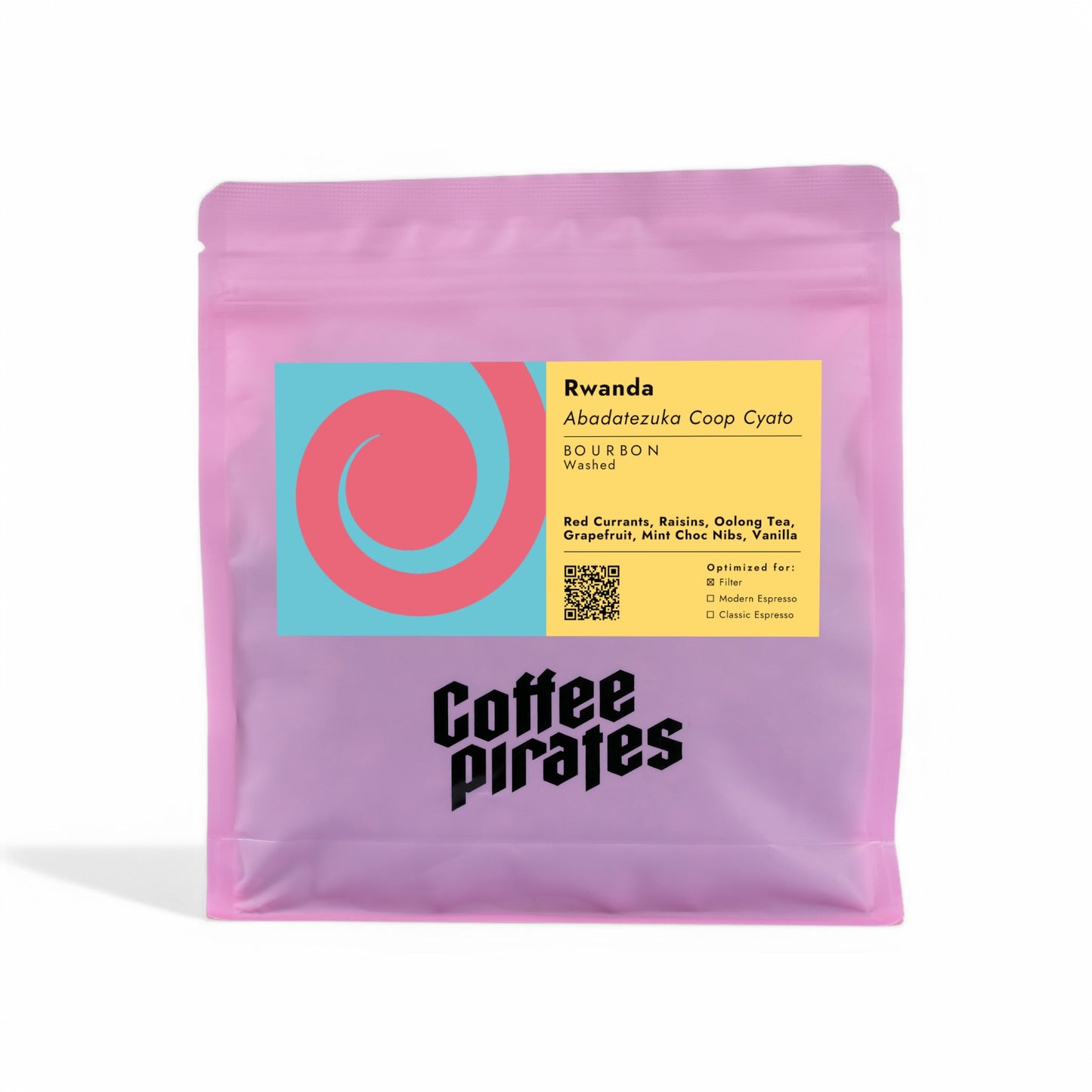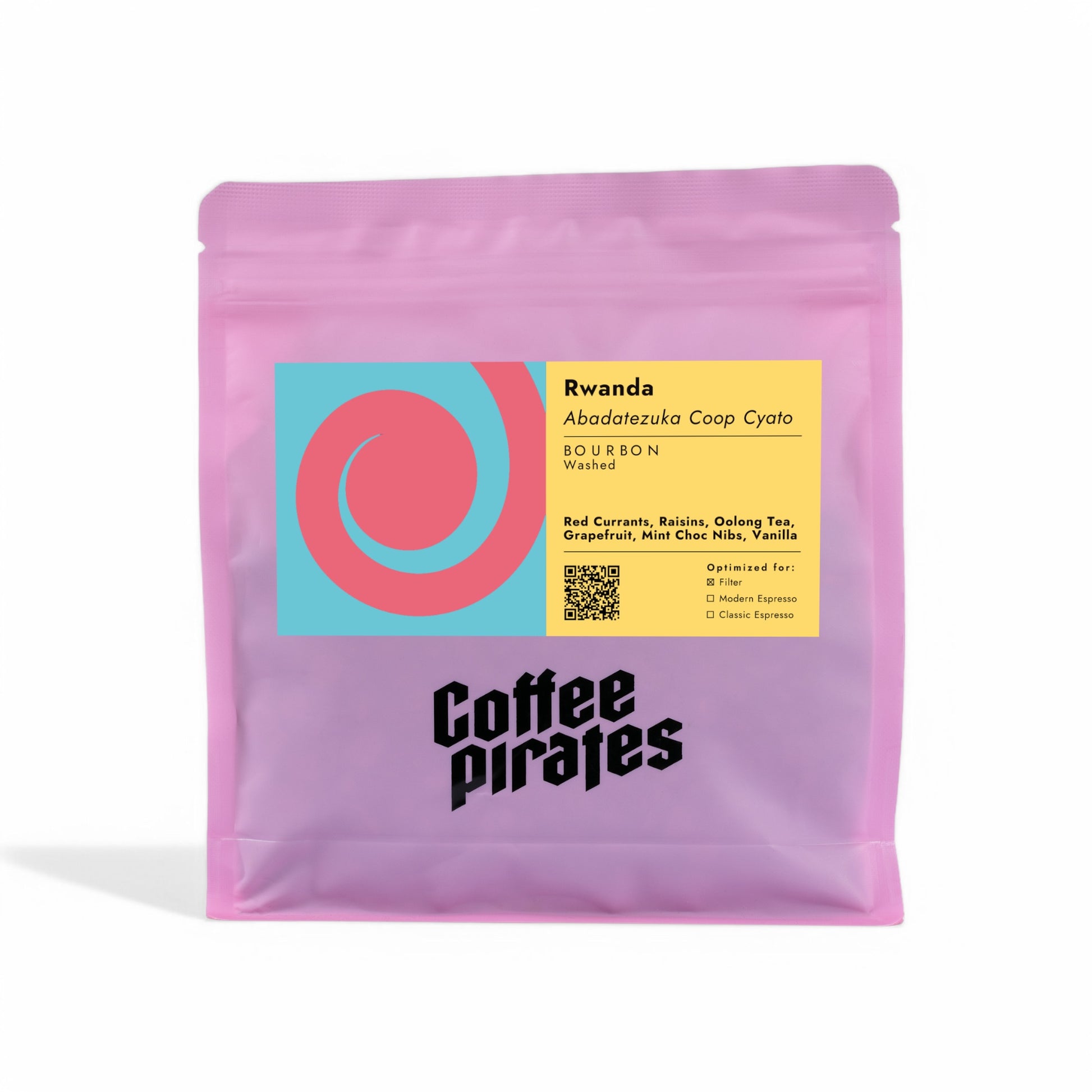Rwanda Abadatezuka Coop
Rwanda Abadatezuka Coop





Couldn't load pickup availability
How Much & How Often
How Much & How Often
Not sure how much coffee you need?
| Cups a week | 250g bag |
| 1-4 | 1 bag a month |
| 5-8 | 2 bags a month |
| 9-12 | 3 bags a month |
| 13-16 | 4 bags a month |
1 cup of coffee = a 240 ml serving based on a 1:16 brew ratio
For example, if your brew ratio is 1 to 16 (often expressed 1:16, or 1/16), then for every one part coffee, you use 16 parts water. In other words, to prepare 1 cup of brewed coffee you would use 15g of ground coffee and 240 ml of water.
Shipping & Delivery
Shipping & Delivery
We ship daily from Monday to Friday from our locations in Vienna. The minimum order value is €20.
Deliveries in Austria
- 2-4 business days
- Free at €35
- €4.50 shipping for orders below €35
Deliveries to Germany
- 2-7 business days
- Free at €70
- €9.90 shipping for orders below €70
Deliveries to countries within the EU, other than Germany
- 3-10 business days
- Free at €70
- €14.90 shipping for orders below €70
Ethically Sourced, Fairly Paid
Ethically Sourced, Fairly Paid
We work closely with coffee farmers and reliable partners to ensure fair wages and transparent relationships.
Behind the Cup
Behind the Cup
Bordering Lake Kivu and the Nyugwe Forest, the Western Province of Rwanda is a very abundant and tropical area. The soil is a mixture of sandy and black humus at extreme elevations have allowed for small producers and washing stations to turn out specialty coffee at volumes that Rwanda has never seen before.
Abadatezuka Cooperative is a group of smallholder farmers in Rwanda's Western Province who deliver their coffee in cherry to the Cyato Washing Station, which is located in the Cyato sector of the Nayamasheke district in that region. The producers here grow coffee at elevations all the way up to 2,200 meters above sea level, and the washing station is located at 1,850 meters above sea level. Coffees are brought to the Cyato washing station from the surrounding areas of Kivoga, Kageyo, Rusumo, Gatare, and Nsinduka. The washing station was established in 2017.
One interesting facet to coffee here is that the native honeybees that live in and around the Nyungwe forest where the coffee is grown are said to be responsible in part to the "unique profile" this coffee has. The bee-assisted pollination, fertile ground (black humus and sandy soil), and cool lake-affected climate thanks to the area's proximity to Lake Kivu contribute to the flavors found in the cup. The farmers use no synthetic inputs, either as fertilizers or as pest control.
We source this coffee from Cafe Imports in Berlin.






